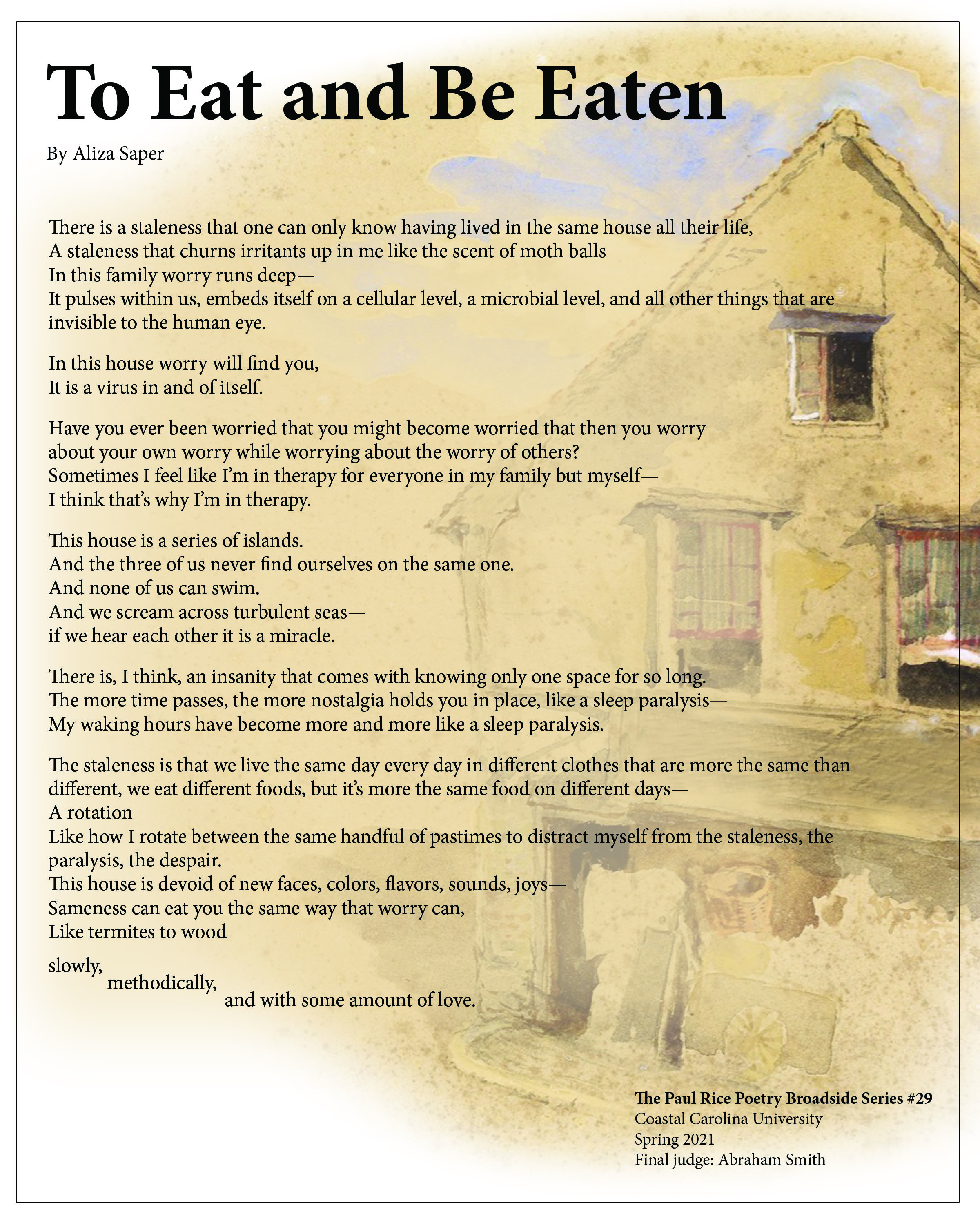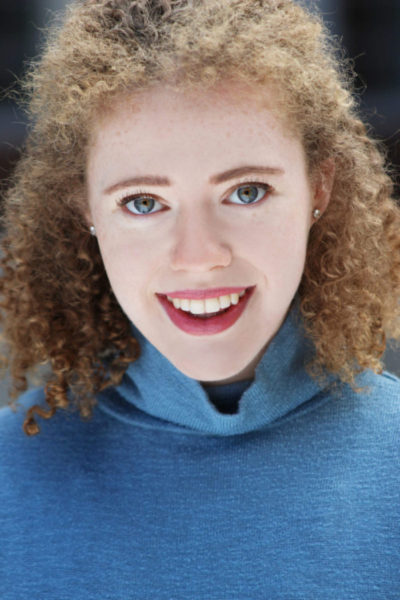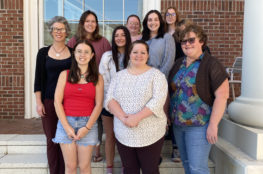We don’t always think of poetry as a performance art. Though it’s fundamentally designed to be spoken, poetry is frequently considered to be a solitary pursuit, with the creator focused inward. CCU senior Aliza Saper, physical theater major and winner of the Spring 2021 Paul Rice Poetry Broadside Contest with her work “To Eat and Be Eaten,” brings the dynamic nature of poetry back to its rightful place: front and center stage.
Saper’s winning work is a reflection on the nature of space, the passage of time, and a permeating anxiety that she believes afflicts everyone in a Covid-19 world.

“This is my Covid life,” Saper said of her winning work, which was judged by poet Abraham Smith. “I think we all have a version of this right now. The problems that we’re facing, the struggles that we’re having, are all compounded together.”
Saper edited and submitted the poem from her childhood bedroom, the same place she inhabited the entire pandemic. The focus on space in the poem blends with a chronic worry that Saper fears is an unavoidable symptom of the pandemic.
“It really has been a time of, ‘If it’s not this thing that’s eating at me, then it’s this thing,’” said Saper. “And then it almost feels abnormal to be at peace and not be worrying — we have become so used to that little eating-away-at-you feeling that something’s wrong, something bad is going to happen.”
Saper has certainly gained notoriety for her verse in her final semester at CCU; in addition to her Paul Rice Poetry Broadside Contest honor, Saper also won the inaugural commencement poetry contest, open to all pending graduates of the E. Craig Wall Sr. College of Business Administration and the Thomas W. Edwards and Robin Edwards College of Humanities and Fine Arts, established for the combined ceremony for students of the two colleges. Saper’s winning work, “Inches,” will be presented at commencement.
Joe Oestreich, chair and professor of the Department of English, said Saper’s approach transcends mere reflection on a given subject.
“What I love about her work, and this commencement poem specifically, is how she gets beyond the sentimentalized, conventional wisdom of her topic to the truth with a capital ‘T,'”said Oestreich.
Theater has always been the center of Saper’s artistic life, with poetry serving as a side hobby. Her discovery of poetry as performance occurred during a gap year she took after attending Illinois Wesleyan University for one year. At home in Denver and feeling a bit pigeonholed, Saper dared herself to attend the weekly poetry slam at the Mercury Café.
People liked my words, and I was shocked.
“I went, and it was one of those magical moments in life when I was in the right place at the right time,” said Saper. “I had written poetry before — that wasn’t new — but performing it was. People liked my words, and I was shocked.”
Saper enrolled in CCU’s physical theater program the following year, and during that time she founded Tongues in Common, a monthly poetry open mic night at Yoga in Common in Myrtle Beach. Established in February 2019, the student-run program continues today as an outlet for artistic performance, growth, and connection.
This year’s Paul Rice Poetry Broadside Contest was Saper’s first experience submitting her work, and she encourages other students to do the same, emphasizing the concept of pulling out work that’s already been produced and polishing it up.
“Giving life to old work is sometimes more accessible and more fulfilling that even producing something new,” said Saper. “That idea is really well taught to the physical theater majors: work never dies. I think we’re so used to having our work die. We get an assignment to make this project, and we organize it, and we show it in class, and we get a grade on it, and it evaporates after that. But that’s always raw material. Once you make something, it’s raw material.”
Saper credits Jessica Richardson, associate professor of creative writing in the Department of English, with guiding her, an artist who typically wrote poetry for the ear, toward learning how to edit for the eye.
“I write poetry for performance, so I never thought about the importance of details such as punctuation and line placement,” said Saper. “It was a fascinating experience.”


